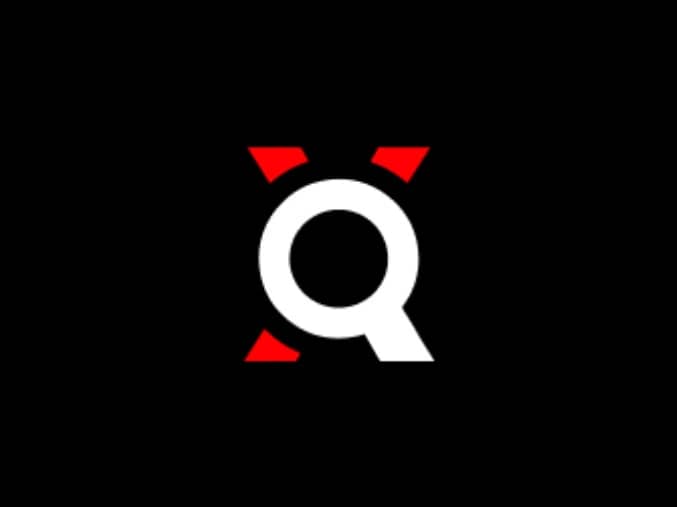Subscribe to wiki
Share wiki
Bookmark
QuantixAI (QAI)
The Agent Tokenization Platform (ATP):Build autonomous agents with the Agent Development Kit (ADK)
0%
QuantixAI (QAI)
QuantixAI is a platform that integrates artificial intelligence (AI) and blockchain technology to support algorithmic trading. Developed by Quantix Capital, the platform is designed to address inefficiencies in traditional trading methods by employing machine learning, quantitative strategies, and decentralized finance (DeFi) functionalities. Central to the platform is the QAI Token, an Ethereum-based utility token that facilitates liquidity, governance, and access to platform features. [1] [2] [3] [4]
Overview
QuantixAI incorporates a range of advanced features to support its algorithmic trading ecosystem. At its core is an AI-driven trading system capable of conducting real-time market analysis and executing trades autonomously, leveraging data insights to adapt strategies dynamically. The platform is powered by the QAI Token, its native cryptocurrency, which facilitates seamless transactions, enables staking for rewards, and provides holders with governance rights, allowing them to participate in decision-making processes. [1] [2]
QuantixAI provides tools and infrastructure for optimizing trading activities. Its systems utilize AI to automate trading decisions, enhance liquidity, and implement strategies that manage financial risks. The platform caters to a diverse user base, including institutional and individual traders.
To address market challenges, the platform integrates a liquidity optimization system designed to enhance trade execution efficiency by minimizing slippage and ensuring smoother transactions. It also offers customizable trading tools, which provide users with adaptable interfaces and features suitable for both beginners and experienced traders. To further support its users, QuantixAI employs integrated risk management mechanisms. These include stop-loss orders, dynamic position sizing, and continuous market condition analysis, all aimed at reducing exposure to volatility and safeguarding investments.
QuantixAI utilizes a combination of blockchain technology and AI to deliver its services. The QAI Token operates on Ethereum, leveraging the blockchain's smart contract functionality to secure transactions and enable decentralized governance. QuantixAI incorporates machine learning models to analyze real-time and historical market data. These models identify trends, forecast potential market movements, and adjust trading strategies dynamically. QuantixAI's infrastructure includes ultra-low latency execution systems and scalable cloud-based architecture to accommodate high trading volumes. [1] [2] [3] [4] [5]
Platform Architecture
QuantixAI’s modular design supports scalability and efficiency:
- Data Processing: Aggregates information from multiple sources, including market feeds and news.
- Machine Learning Models: Provides predictive analytics and anomaly detection.
- Trade Execution: Automated processes ensure timely and efficient order fulfillment.
- Risk Assessment: Employs tools like Value at Risk (VaR) and scenario analysis to evaluate financial exposure.
Quantitative Strategies
The platform employs a variety of algorithmic approaches, including:
- Arbitrage: Identifying price differences across markets.2. Trend Following: Detecting and acting on prevailing market movements.3. Mean Reversion: Anticipating price corrections to a statistical average.
Tokenomics
The QAI Token has a fixed supply of 10,000,000 units, distributed across the following categories:
- Trading Bot Fund: 50% (5,000,000 QAI)
- Market Making: 10% (1,000,000 QAI)
- Marketing: 10% (1,000,000 QAI)
- Investments (Locked 1 Year): 20% (2,000,000 QAI)
- Team (Locked 2 Years): 10% (1,000,000 QAI)
Vesting and Unlocking
- Token Generation Event (TGE): 10% of tokens (1,000,000 QAI) were released at the TGE. 500,000 QAI allocated to Market Making, and 500,000 QAI to the Trading Bot Fund.
- Investment Wallet: Gradually unlocked in six equal monthly installments after a one-year lock period.
- Team Allocation: Fully unlocked after a two-year lock period.
Token Utility
The QAI Token performs several functions within the QuantixAI ecosystem:
- Feature Access: Token holders can access advanced trading tools and premium analytics.
- Staking: Enables participants to earn rewards while contributing to the platform’s liquidity.
- Governance: Grants voting rights on platform developments and operational proposals. DeFi Applications:
- Liquidity Pools: Tokens can be staked on decentralized exchanges to support trading activities.
- Yield Farming: Allows participation in reward-earning mechanisms in DeFi protocols. QuantixAI is available on cryptocurrency exchanges such as MEXC, Deepcoin, Toobit, Tapbit, Azbit, Fastex, LCX and Ourbit. The QAI Token is tracked on platforms like CoinGecko and CoinMarketCap, offering market visibility for traders and investors. [1] [2] [3] [4] [5] [6] [7]
Leadership
QuantixAI is developed and managed by a team with expertise in blockchain, AI, and finance:
Jake Seltzer (Founder): Focuses on innovation in blockchain-based systems.
Samuel Ng (Co-Founder): Specializes in digital asset strategies.
Woochan Lee (Chief Operating Officer): Oversees operational and business functions.
Marco Tumminaro (Head of Strategy): Guides the strategic direction of the platform.
Raghuraj Rai (Chief Marketing Officer): Manages branding and market outreach.
Rubens Rubini (Head of Partnerships): Handles collaboration initiatives.
Roadmap
The development roadmap outlines planned milestones:
2024
- Q1: Token Generation Event (TGE).
- Q2: Establish partnerships with financial institutions.
2025
- Q2: Deployment of AI-powered trading bot.
- Q3: Introduction of enhanced algorithmic tools.
2026
- Q1: Launch of staking platforms and DeFi integrations.
- Q4: Enable cross-chain token compatibility.
2027
- Q1: Release of a swap platform for token exchanges. QuantixAI is structured to address challenges in trading systems through the integration of AI and blockchain technologies. By offering tools for efficient trade execution and risk management, it provides a framework for traders seeking a data-driven approach to financial markets. [1] [2] [3] [4] [5]
See something wrong?
The Agent Tokenization Platform (ATP):Build autonomous agents with the Agent Development Kit (ADK)
